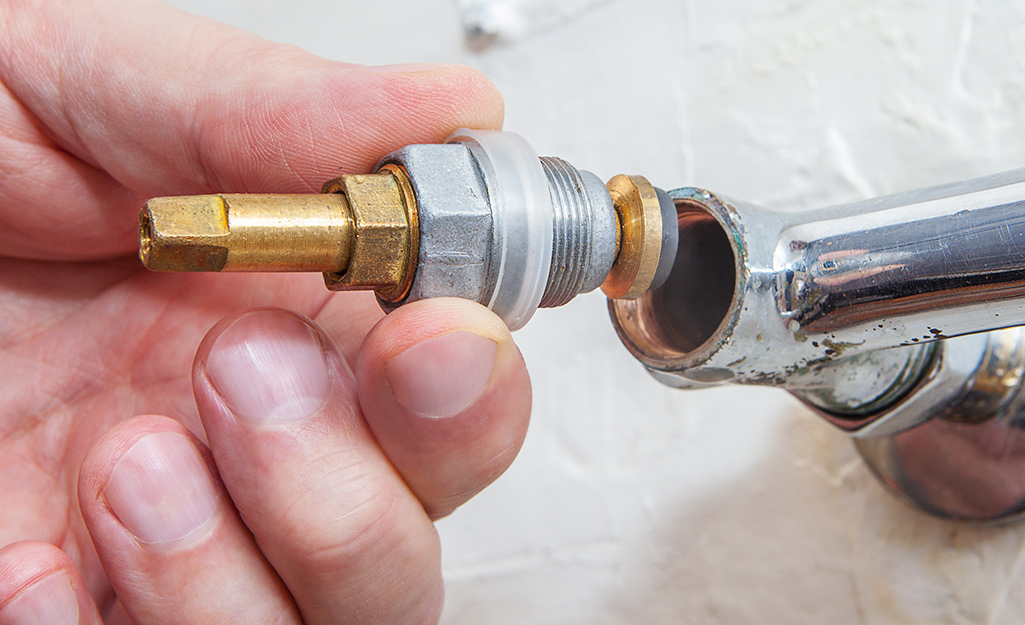Motives Why It's Crucial to Fix a Faulty Faucet
Motives Why It's Crucial to Fix a Faulty Faucet
Blog Article
We have unearthed the article about What Causes Leaky Faucets & How To Fix Them listed below on the internet and believe it made perfect sense to talk about it with you on this page.

Leaking faucets might appear like a minor trouble, but their impact goes beyond just the inconvenience of the sound. From drainage to incurring unnecessary monetary prices and wellness dangers, overlooking a leaking faucet can result in numerous repercussions. In this short article, we'll explore why it's important to address this common household problem promptly and properly.
Wastefulness of Water
Environmental Impact
Dripping taps contribute significantly to water wastage. According to the Epa (EPA), a solitary tap dripping at one drip per second can lose greater than 3,000 gallons of water per year. This not only pressures water sources however also impacts communities and wild animals based on them.
Step-by-Step Guide to Dealing With a Dripping Tap
Devices Required
Before trying to fix a dripping tap, gather the needed tools, including an adjustable wrench, screwdrivers, replacement components (such as washers or cartridges), and plumber's tape.
Typical Tap Issues and Their Solutions
Identify the type of tap and the certain concern causing the drip. Common problems include damaged washing machines, rusty valve seats, or defective O-rings. Describe maker directions or on-line tutorials for detailed guidance on fixings.
Financial Expenses
Raised Water Expenses
Beyond the environmental influence, dripping faucets can inflate water costs substantially. The built up wastage gradually converts into greater utility expenditures, which might have been prevented with prompt repairs.
Prospective Residential Property Damage
In addition, prolonged leaking can lead to damage to components and surface areas bordering the tap. Water build-up can create staining, deterioration, and even architectural concerns if left ignored, leading to extra fixing costs.
Wellness Concerns
Mold And Mildew and Mildew Growth
The constant visibility of moisture from a dripping faucet produces a perfect atmosphere for mold and mildew and mold growth. These fungi not just endanger interior air quality but additionally pose wellness threats, especially for individuals with breathing problems or allergies.
Waterborne Diseases
Stagnant water in trickling taps can end up being a breeding place for bacteria and other pathogens, boosting the risk of waterborne diseases. Impurities such as Legionella microorganisms thrive in stagnant water, possibly causing serious diseases when consumed or breathed in.
DIY vs. Expert Fixing
Pros and Cons of Do It Yourself Fixing
While some might attempt to take care of a leaking faucet themselves, DIY repair services include their own set of challenges. Without proper expertise and devices, do it yourself attempts can exacerbate the problem or bring about incomplete repairs, prolonging the issue.
Advantages of Employing a Professional Plumber
Working with a specialist plumber ensures that the underlying reason for the leaking tap is addressed effectively. Plumbing professionals possess the proficiency and devices to identify and fix faucet concerns successfully, conserving time and minimizing the threat of more damages.
Ecological Obligation
Specific Contribution to Conservation
Taking obligation for repairing dripping taps aligns with more comprehensive initiatives toward water conservation and environmental sustainability. Every person's actions jointly make a considerable effect on protecting precious resources.
Lasting Living Practices
By prioritizing prompt repairs and taking on water-saving routines, individuals add to lasting living methods that benefit both existing and future generations.
Preventive Measures
Normal Upkeep Tips
To avoid trickling faucets, execute regular upkeep such as cleansing aerators, checking for leakages, and changing worn-out parts immediately. In addition, think about installing water-saving tools or updating to more effective fixtures.
Value of Prompt Repair Works
Dealing with trickling faucets as soon as they're seen protects against more water waste and possible damages, eventually conserving both water and cash in the long run.
Impact on Property Worth
Understanding of Well-Maintained Building
Maintaining a building in good condition, consisting of dealing with maintenance issues like dripping faucets, enhances its viewed worth and charm amongst prospective customers or lessees.
Influence on Resale Worth
Characteristics with properly maintained plumbing fixtures, including taps, command higher resale values in the realty market. Attending to trickling faucets can add to a favorable impact throughout residential or commercial property assessments and arrangements.
Conclusion
Addressing a dripping faucet exceeds simple convenience; it's an essential step towards preserving water, decreasing monetary costs, and protecting health and wellness and residential property. Whether through DIY fixings or specialist support, taking action to repair trickling faucets is a little yet impactful method to advertise responsible stewardship of resources and add to a much healthier, extra sustainable future.
How to Fix a Leaky Faucet: Step-by-Step Repair Guide
A leaky faucet may seem like a simple annoyance, but if it's not fixed promptly, that leak could cost hundreds to potentially thousands. From water damage to mold, mildew, and high water bills, even a tiny leak can be catastrophic if left unattended. Damage like this can even affect the overall value of your home, so it's important to take the right approach for leaky faucet repair. You may need the help of a plumber in some cases, but we've got a few tips you can try on how to fix a leaky faucet before calling the pros.
Four Faucet Types
When you're learning how to fix a leaky faucet, the first step is knowing what kind of faucet you're working with! There are four common types.
Cartridge Faucets
Cartridge faucets come in one- or two-handled varieties. In one-handled cartridge faucets, hot and cold water combines in a single cartridge. In the two-handled versions, hot and cold water are controlled separately and mixed in the faucet.
Ball Faucets
Ball faucets have a single lever you push up and down to adjust the pressure and rotate to change the temperature. A slotted metal ball controls the amount of water allowed into the spout.
Compression Washer Faucets
They're the oldest type of faucet, but they're still used in many homes — especially older ones. Compression faucets have two separate handles that, when turned, raise or lower the washer that seals a water valve. This valve stops water from flowing through the faucet when it is turned off.
Disc Faucets
Disc faucets rarely need to be repaired due to their maintenance-free design. The water flow is controlled by two discs — the upper one raises and lowers against a fixed lower disc, creating a watertight seal. If your disc faucet starts leaking, you may need to replace the seals or clean residue buildup from the inlets.
Fixing a Leaky Faucet
Step 1: Turn Off the Water
Whether you're learning how to fix a leaky bathtub faucet or how to fix a leaky kitchen faucet, always turn off the water supply to your working area when you're fixing a leak. The last thing you want is a flood added to your list of things to fix.
Look for the shutoff valves below your sink or around the tub and turn them clockwise to stop the water flow. If your faucet doesn't have shutoff valves, you may need to turn off the water for the whole house. Check to make sure it's off by turning the faucet on. If nothing comes out, you're ready to start the repair.
Step 2: Take Apart the Faucet
How you disassemble your faucet depends on the type of fixture you have. You can use a flathead screwdriver to remove the caps on top of the handle or handles for cartridge and compression faucets. Inside, you should see handle screws. Unscrew these with a screwdriver to remove the handle.
Disc- and ball-style faucets will typically have an inlet screw near the handle, and removing that will reveal the interior of the faucet.
Detach the Valve Stem
For cartridge- and compression-style faucets, you'll see the inner valve stem or cartridge once you remove the faucet handles. If you have a compression faucet, unscrew the brass valve stem. If you have a cartridge faucet, pull out the cartridge. If your cartridge has been in place for a while, it may require some tools or extra force to remove it due to mineral deposits.
Examine and Replace Parts
Once you've removed the parts, check them out to confirm what needs to be replaced. You may see corroded rubber washers, O-rings, stems, or cartridges. On a ball-style faucet, check the seats and springs for damage.
If you need to repair a leaky disc faucet, check the inlet and seals on the lower disc.
Once you determine what parts must be replaced, visit your local hardware store. Bring the damaged parts with you to ensure you can purchase the correct components to replace them.
Clean Valves and Faucet Cavity
If you've removed a stem or cartridge, you may notice mineral buildup in the faucet's threads. Use white vinegar to clean the valve seat by soaking it for a few minutes, then scrub it away with a soft toothbrush and rinse with warm water. You can also clean the interior of the faucet in the same way.
Reassemble the Faucet
Once your faucet is cleaned and the required parts have been replaced, it's time to reassemble it. Put the pieces back together and slowly turn the water supply back on. Doing this slowly is crucial because too much initial water pressure can damage the new hardware you've just installed.
https://homewarranty.firstam.com/blog/how-to-fix-leaky-faucet

Do you like reading about Water Dripping from Faucet: Why and How to Fix? Leave feedback down the page. We'd be happy to listen to your thoughts about this post. Hoping that you visit us again later on. In case you appreciated our blog entry if you please do not forget to share it. Kudos for your time. Return soon.
Report this page